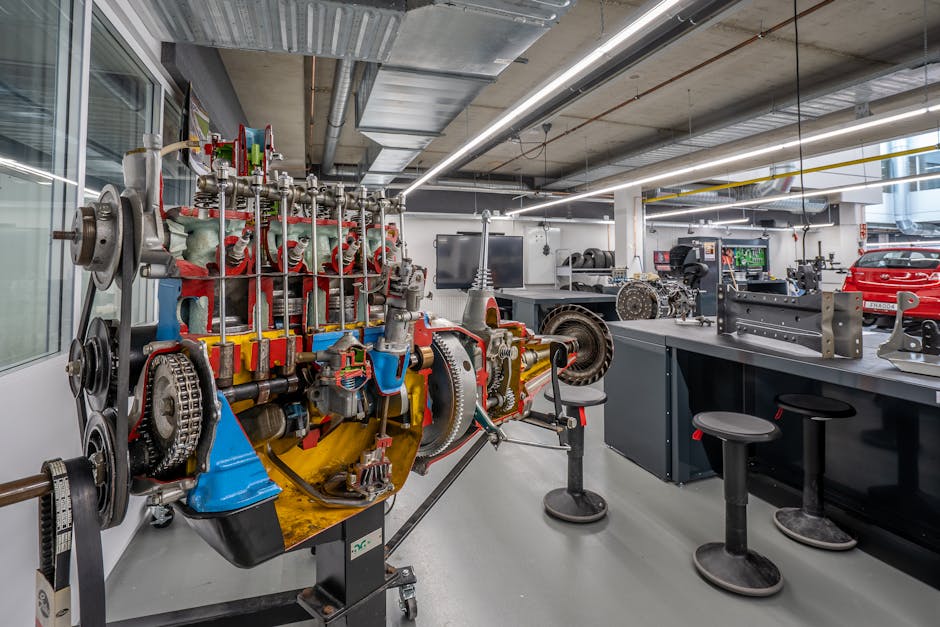The automotive industry, perpetually evolving, necessitates a constant stream of innovation. This progress hinges on dedicated research and development, undertaken in strategic locations across the globe. Identifying these major hubs reveals a dynamic interplay of factors, including technological advancements, economic considerations, and a nation’s specific strengths.
A constellation of centers, brimming with cutting-edge facilities and talented personnel, are currently driving automotive breakthroughs. These research strongholds are not monolithic entities but diverse ecosystems, often interwoven with educational institutions, government initiatives, and private sector endeavors.
Silicon Valley’s Influence: A Tech-Driven Approach
Silicon Valley, while primarily known for its technological prowess in computing, boasts a significant presence within the automotive research domain. The integration of software and hardware in modern vehicles has created an unprecedented synergy with tech giants. Companies like Tesla, Google, and numerous startups operate within this environment, their research frequently encompassing autonomous driving, electric vehicle propulsion, and connected car technologies. The availability of sophisticated engineering talent and venture capital further fuels this innovative ecosystem. This focus on software-defined vehicles is creating a unique, rapidly evolving hub.
German Engineering Prowess: A Legacy of Excellence
Germany remains a prominent force in automotive research, particularly in combustion engine technology. Companies like BMW, Audi, and Mercedes-Benz, rooted in a long history of automotive excellence, maintain extensive research facilities. These entities concentrate on optimizing internal combustion engines, exploring new materials, and refining manufacturing processes. Furthermore, their research extends to electric vehicle architecture and hybrid powertrains, demonstrating a commitment to adapting to evolving environmental concerns. A robust educational network, coupled with industrial partnerships, strengthens this longstanding tradition.
Japan’s Meticulous Approach: From Tradition to Innovation
Japanese manufacturers, steeped in precision engineering and a culture of meticulous quality control, also host substantial automotive research facilities. Toyota, Honda, and Nissan are prominent players in this realm, with research focused on fuel efficiency, advanced safety features, and reliable manufacturing techniques. Furthermore, these firms are active in the realm of hybrid and electric vehicle propulsion systems, showcasing a consistent commitment to environmentally responsible technologies. Their focus on practical application and meticulous design sets them apart.
The Rise of China’s Automotive Sector: An Emerging Hub
China’s automotive industry is rapidly gaining global prominence, fuelled by substantial government investment and a booming domestic market. Major Chinese car manufacturers and research institutions are developing robust infrastructure for autonomous vehicle technology, electric powertrains, and advanced battery systems. A combination of state-backed initiatives and private sector investment has fostered a dynamic environment for innovation, positioning China as a significant player on the automotive research landscape. The country’s vast potential and burgeoning technological advancements create a compelling perspective.
United States’ Diverse Landscape: A Mixture of Strengths
The United States, home to diverse automotive giants, displays a multifaceted approach to research. Alongside established companies like Ford and General Motors, the presence of startups focused on niche technologies, such as autonomous driving, supplements the ecosystem. Different areas of the country exhibit varying strengths, with California being a prominent region for electric vehicle innovation. However, the US remains a diverse hub for a variety of approaches, showcasing a broader scope in automotive research.
The European Union’s Collaborative Approach: A Continental Effort
The European Union recognizes the critical role of automotive research in maintaining its competitive edge. Collaborative projects and initiatives, like the EU’s Horizon Europe program, seek to foster research across multiple countries, encouraging the development of innovative solutions to address challenges in areas such as sustainable mobility and advanced manufacturing. This collaborative ethos drives the advancement of technologies like fuel cell vehicles and alternative energy solutions.
Factors Influencing Research Hubs
Several key factors contribute to the establishment and success of automotive research hubs. Proximity to skilled labor pools, particularly within engineering and technological fields, is essential. Access to funding, whether through government grants, venture capital, or corporate investment, is vital to support research endeavors. Finally, the presence of a supportive regulatory environment and a strong intellectual property framework encourages innovation and commercialization.
The future of automotive research will undoubtedly be shaped by these hubs. Their continued dedication to innovative solutions will define the next generation of vehicles. The convergence of technology and transportation paves the way for a world where mobility is more efficient, sustainable, and accessible. The evolving landscape of research hubs will continue to adapt, responding to the dynamism of the automotive industry and shaping a future defined by progress.












